The 2016 ACR/ARHP Annual Meeting in Washington, D.C., will bring together rheumatologists, rheumatology heath professionals, and researchers from around the world to learn about the latest advances in preventing, diagnosing, and treating rheumatic diseases and their comorbid conditions.
Attendees have more than 450 educational sessions to choose from in diverse learning formats, including didactic lectures, debates, interactive sessions, poster tours, and workshop sessions. Within this year’s primary program tracks, attendees will find sub-specialty sessions targeted to specific areas of interest—Educators, Health Professionals, Fellows-in-Training, Pediatric Rheumatologists, and Practice Managers.
To help attendees plan their schedules and make the most of the meeting, members of the Annual Meeting Planning Committee and recognized thought leaders in this year’s sub-specialty areas offered their thoughts on this year’s program and some of their recommended “must-attend” sessions.
Educators
The educator sessions at the Annual Meeting help rheumatology educators stay at the forefront of developments in medical education, both within rheumatology and the broader field, introducing educators to novel and emerging educational techniques and continuing to build a community of rheumatology educators.
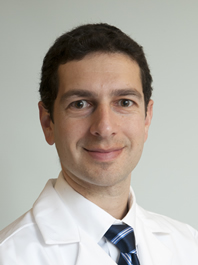
“The landscape of the medical education field is rapidly changing,” said Eli Miloslavsky, MD, of Massachusetts General Hospital in Boston. “Changes in educational techniques with a focus on learner-centered teaching and development of life-long learners have made it more important than ever for educators to effectively utilize techniques that promote critical thinking, long-term learning, and reflection. This year, the ACR educator sessions will equip educators with techniques to successfully accomplish these goals.”
Dr. Miloslavsky encourages attendees to attend Hot Topics in Teaching Techniques: Flipped Classroom, Technology, and Reflection at 12:30 PM on Monday, Nov. 14. This three-part session will show participants how to implement the “flipped classroom” technique, which is increasingly being used in medical education, into their teaching, how to incorporate technology into various medical education settings, and how to use reflection methods to promote self-assessment and deeper learning.
“I would also recommend attending The Art of Asking Questions as a Gateway to Effective Teaching and Feedback on Tuesday morning, Nov. 15, at 7:30,” Dr. Miloslavsky said. “Educators use questions to assess learners, set up teaching points, and probe learner understanding of their performance. This workshop will focus on effective questioning techniques that improve the likelihood that feedback and teaching will be well-received and lead to change.”
Dr. Miloslavsky also recommends attending the Medical Education Year in Review, at 1:00 PM Sunday, Nov. 13, for an overview of the latest advances in medical education that have a direct impact on rheumatology training and Innovative Educators, Novel Techniques: A Rheumatology Research Foundation Special Session at 1:00 PM Tuesday, Nov. 15, which will feature the work of this year’s Clinician Scholar Educator Award recipients.

Health Professionals
The Annual Meeting not only provides excellent networking opportunities with rheumatology specialists from around the world, but also offers health professionals valuable, up-to-date information related to improving patient care, according to Annual Meeting Planning Committee members Courtney Kremer, RN, BSN, CPNP, MSN, of the University of Iowa Children’s Hospital, and Heather Finlayson, PA-C, of Colorado Arthritis Associates.
“You will find world-renowned experts at the meeting presenting new and innovative research all to better our patient care and outcomes,” Kremer said. “It is a tremendous opportunity to meet other rheumatology specialists and learn what other institutions are doing to better patient care.”
A great chance to network with colleagues and discuss common interests, Finlayson said, comes at this year’s ARHP Networking Forums—ARHP Discipline Round Tables at 12:30 PM Sunday, Nov. 13, and ARHP Topic Round Tables at 12:00 PM on Monday, Nov. 14.
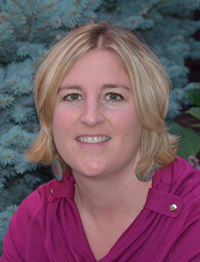
“I strongly recommend all health professionals, particularly first-time meeting attendees, sign up for ARHP’s luncheon and networking meetings,” Finlayson said. “These are great opportunities to network and get to know some of the other people across the country that are doing the same thing that you are and discuss the clinical topics and sessions that will benefit you most.”
An important session for Kremer, a pediatric rheumatology health professional, will be the Pediatric Amplified Pain: A Comprehensive Treatment Approach on Tuesday, Nov. 15, at 4:30 PM.
“This session will go in-depth on how to manage pediatric amplified musculoskeletal pain syndromes using a comprehensive, holistic approach. The scheduled speakers include three specialists from The Children’s Hospital of Philadelphia, including a pediatric rheumatologist, a physical therapist and a psychiatrist,” she said. “I think both adult and pediatric rheumatologists would agree that pain syndromes can be difficult to manage, so it’s not just pediatric rheumatology providers who will benefit from the session.”
According to Finlayson, a couple of sessions with immediate implications for clinical practice are Biologic Therapy: Prescription, Prior Authorization, and Beyond, which will be held at 7:30 AM Monday, Nov. 14, and Immunology Update: Biologic Agents: From Nature, to Protein Engineering to Biosimilars at 7:30 AM Tuesday, Nov. 15.
“It’s really important to keep up with new treatments and new therapies becoming available, such as biosimilars, and the Annual Meeting is the best place to learn about them,” Finlayson said. “I think the clinical implications, as well the financial ramifications, of biosimilars in particular are very important and a big topic of conversation right now.”
Among the sessions that both Finlayson and Kremer look forward to attending is the always-popular Immunology Boot Camp, which has three separate sessions over the course of the meeting: Basis of Targeted Therapy at 11:00 AM Sunday, Nov. 13, Basic Mechanisms of Autoimmunity at 7:30 AM Monday, Nov. 14, and Applying Principles of Immunology to Treatment Decisions at 7:30 AM Tuesday, Nov. 15.
“The first two Boot Camp sessions will educate learners about how the immune system works and understanding the pathophysiology of autoimmunity,” Kremer said. “The final session will put it all together using case studies to help attendees understand clinical decision-making in rheumatology.”
With such a rich program and so many sessions to choose from, Kremer and Finlayson recommend planning ahead and encourage attendees to take advantage of the ACR/ARHP Annual Meeting app.
“The app is easy to use and allows you to select your top sessions and view them on a daily schedule. This will help you determine if any of your sessions are overlapping,” Kremer said. “The app also shows you the location of your session, which is vital in such a big convention center. And don’t worry if you can’t make a desired session—you can listen to session recordings using SessionSelect following the meeting.”
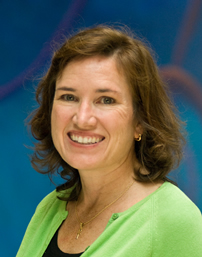
Pediatric Rheumatologists
One the many things that sets the ACR/ARHP Annual Meeting apart from other meetings is the “sheer number of expert clinicians and scientists and presenters who come together from all over the world in a shared effort to solve the problems that plague millions of people with autoimmune diseases,” said Anne Stevens, MD, PhD, of the University of Washington.
“For the pediatric rheumatology community, it’s exciting to be able to meet personally and get to know and share information with so many of the people working to take care of children with autoimmune diseases,” she said. “The opportunity to update our knowledge base on basic, translational, and clinical science helps us to focus on what we need to continue to learn to continue to improve our patient care for the rest of the year.”
Among the sessions Dr. Stevens believes are particularly topical this year are two pediatric sessions focusing on genomics—Early-Onset Monogenic Inflammatory Diseases on Sunday, Nov. 13, at 11:00 AM and Advances in Clinical Care through Whole Exome Sequencing on Tuesday, Nov. 15, at 11:00 AM.
“Both sessions are focused on pediatric disease, but have huge implications for understanding disease in adults and how the clinician approaches the genetic evaluation of a patient,” Dr. Stevens said. “These are going to be really interesting sessions because of some tremendous advances over the last year in identifying genes that cause disease.”
Another important session that she encourages pediatric rheumatologists to put on their Annual Meeting schedule is Pediatric Autoimmune Brain Disease on Tuesday, Nov. 15, at 8:30 AM.
“This is an area where pediatric rheumatologists are increasingly apt to consult,” she said. “This is about patients with encephalopathies and neuropsychiatric lupus and helping us to understand how we can better use biomarkers and neurocognitive evaluation to better focus treatment for these patients.”
Among the other sessions Dr. Stevens recommends for her pediatric rheumatology colleagues are Autoimmunity and the Microbiome at 4:30 PM Sunday, Nov. 13, and Topics in Spondyloarthropathies: From Microbes to Mabs at 8:30 AM Tuesday, Nov. 15.
“I think these are really important sessions because understanding the microbiome is going to help us understand autoimmune disease,” she said. “There are new treatments out every year and the Annual Meeting is where we often hear about them first.”
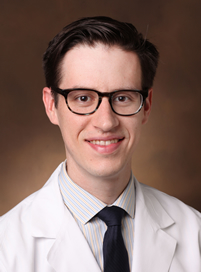
Fellows-In-Training
Every fall, the “rheumatology world” revolves around the Annual Meeting, drawing attendees from every corner of the nation and world and from every sector of the field and giving rheumatology trainees valuable exposure to the latest advances in the field, according to Kevin Byram, MD, of Vanderbilt University Medical Center.
“Exposure to cutting-edge approaches to diagnostics and therapeutics is a valuable asset to the fellows-in-training who attend the Annual Meeting,” Dr. Byram said. “In addition, interaction with other trainees and providers across the country and world gives us an opportunity to network and create lasting and productive collaborative relationships.”
Included in this year’s sessions is one that Dr. Byram expects will “hit close to home” for many early-career rheumatologists at the meeting—Navigating the Market: Recent Fellows’ Experiences in Securing Their First Job on Monday, Nov. 14, at 9:00 AM.
“It’s not uncommon for fellows to develop an anxiety about business or career-related issues, and we’ve tried to address that in the session,” he said. “We will have early career rheumatologists in both private practice and clinical academic settings talking about issues that came up when finding their first jobs. We will also have a contract lawyer who will discuss aspects of contracts that are relevant to the newly minted rheumatologist.”
The Annual Meeting also includes a number of perennial favorites for rheumatology trainees, such as the annual ACR Knowledge Bowl, a Jeopardy-style showdown between rheumatology training programs from across the nation. The preliminary round starts at 12:45 PM Sunday, Nov. 13, followed by the final round on Monday, Nov. 14, at 11:00 AM.
Other annual offerings of interest to fellows-in-training include this year’s Clinicopathologic Conference: Back Pain, Aortitis, and Retroperitoneal Fibrosis: What Is the Differential Diagnosis and the Approach? at 7:30 AM on Monday, Nov. 14. and Thieves’ Market: Show Me Your Best Cases at 2:30 PM on Monday, Nov. 14.
“With the meeting being held in Washington, D.C., this year, I would also encourage fellows-in-training to explore ways to get involved and become advocates for their patients and colleagues. The Power of Arthritis Advocacy, on Monday, Nov. 14, at 2:30 PM, will be a good session to delve into this,” Dr. Byram said.
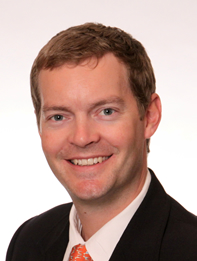
Practice Managers
The Annual Meeting offers practice managers a unique opportunity to network and share innovations that are taking place in rheumatology practices across the country and around the world, according to Colin C. Edgerton, MD, of Low Country Rheumatology in North Charleston, S.C.
“With so many competing information sources, I think the College does a really good job in respecting the time that people invest to attend the Annual Meeting by handpicking sessions and topics that are timely and relevant to current practice,” Dr. Edgerton said. “If you look at this year’s Business/Administration track, for example, virtually all of the sessions should be of great interest to practice managers.”
This year’s pre-meeting courses includes two all-day sessions that Dr. Edgerton believes all practice managers should consider attending—Advanced Rheumatology Coding Case Study Workshop, beginning at 9:00 AM Friday, Nov. 11, and Practice Management Course: The Next Generation of Business Development for Rheumatology Practices at 8:00 AM. Saturday, Nov. 12.
“These are high-yield courses covering the most current issues in coding and reimbursement and targeting some of the newest innovations in rheumatology practice management, such as group practices without walls and ways to improve revenue cycles, which I think practice managers are really hungry to get more information about,” Dr. Edgerton said.
In light of the new MACRA rule and the drive toward value-based medicine, Dr. Edgerton encourages practice managers to attend Holy MACRA! How to Survive and Thrive in the New Era of MACRA, MIPS, and APMs on Sunday, Nov. 13, at 8:30 AM. The session will include an update on the ACR’s RISE Registry.
“With the recent MACRA rule, it’s going to be a requirement to be part of clinical data registries, and the RISE Registry is the most cogent and potent registry for rheumatologists,” he said. “I think a lot of practice managers are going to want to be at this session to understand the nuts and bolts of the RISE Registry now that it is going to be an important part of how you’re measured for CMS reimbursements.”
To help rheumatologists ensure that their practices are ready to adapt to the changes that are coming, Dr. Edgerton also recommends The Value-Based Payment Modifier: How to Prepare Your Practice at 11:00 AM Sunday, Nov. 13.
“This covers a really important piece of value-based medicine that is going to be rolling out at the beginning of 2017,” he said. “There are some real nuances to understanding it that will be of benefit to practice managers and the entire community of rheumatologists.”
Among the other sessions Dr. Edgerton recommends and looks forward to attending are Legislative and Regulatory Update 2016 at 7:30 AM Tuesday, Nov. 15, and CORC Forum: Emerging Biosimilars in Therapeutic Management at 7:30 AM Wednesday, Nov. 16.
